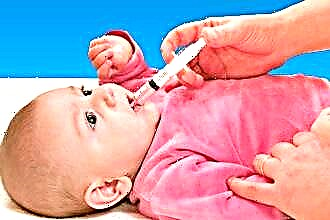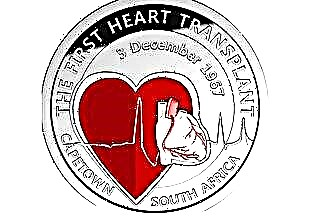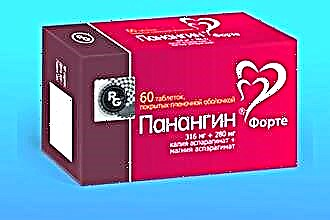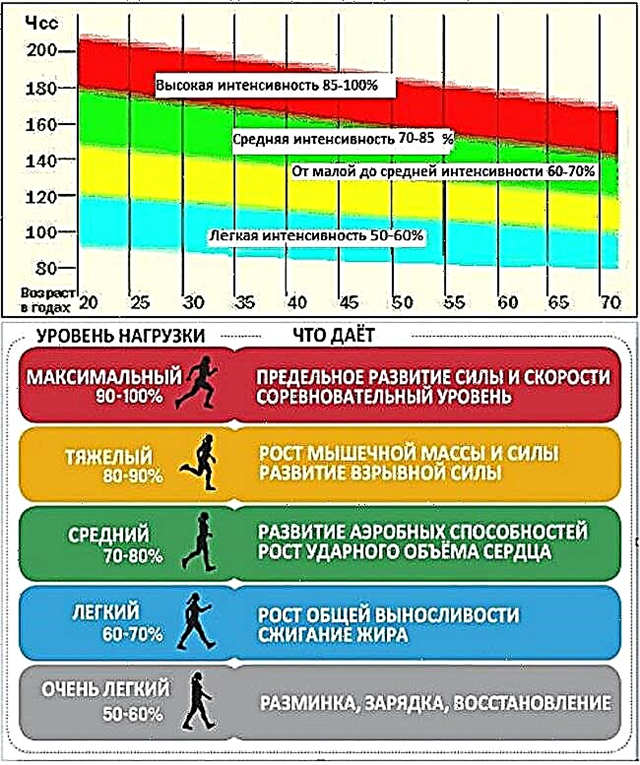An incompletely developed immune system in a newborn is not able to provide sufficient protection against pathogenic microorganisms. Breastfeeding helps to strengthen the immune system with the help of protective immunoglobulins, thanks to which children get sick much less often. However, it is not always possible to breastfeed the baby, therefore, feeding is carried out with highly adapted milk formulas. Every second, a small organism is attacked by microbes, as a result of which a runny nose and cough may appear in the baby.
To understand the reasons for the deterioration of the condition, it is necessary to analyze the period that preceded the onset of symptoms. The focus should be on possible hypothermia, contact with sick children and the action of an allergic factor.
Causes
In a newborn girl or boy, the cause of a cough and a runny nose in most cases is a cold and SARS. Sometimes physiological factors do not come first.
Physiological features
Pediatricians identify several physiological factors that may be accompanied by a deterioration in the baby's condition:
 in a 7-month-old child, when the first tooth erupts, the gums may become inflamed, sleep disturbances, high fever, severe salivation, nasal congestion with watery rhinorrhea, and intestinal upset may be disturbed. The child becomes moody and tries to chew on any toy. Usually, after 3-4 days, the condition of the children returns to normal;
in a 7-month-old child, when the first tooth erupts, the gums may become inflamed, sleep disturbances, high fever, severe salivation, nasal congestion with watery rhinorrhea, and intestinal upset may be disturbed. The child becomes moody and tries to chew on any toy. Usually, after 3-4 days, the condition of the children returns to normal;- a month-old child may have a physiological rhinitis. Its occurrence is due to the adaptation of the nasal mucosa to aggressive environmental factors. If during the prenatal period the mucous membrane came into contact only with amniotic fluid, after childbirth it has to deal with dust, microbes, chemicals that are contained in the air. A physiological runny nose can be troubling in the first 3 months after birth;
- regurgitation is another cause of nasal discharge.
If mucus is secreted in large quantities, it can drain down the nasopharynx and provoke a cough.
Dangerous causes
Cough and runny nose in infants can occur due to:
- viral infection of the body. Often ARVI is diagnosed in premature babies, "artificial", babies with severe congenital diseases (HIV). Clinically, acute respiratory viral infections are manifested by fever, difficulty in nasal breathing, and a runny nose. Cough appears when inflammation spreads to the trachea, bronchi;
The severity of symptoms depends on the aggressiveness of the virus and the strength of the infant's immune defenses.
- an allergic reaction. An allergen can be pollen, wool, dust, strong odors, hygiene products, household chemicals, medicines, complementary foods. Symptomatically, the pathology is manifested by sneezing, profuse rhinorrhea, itching of the eyes, nose, lacrimation, skin rashes, cough, swelling of the lips, eyelids, reddening of the conjunctiva;
- colds. It develops if the child is frozen on the street or has been in a draft for a long time. With a cold, rhinorrhea, coughing, nasal breathing, body aches are worried. The child is naughty, refuses to eat and does not sleep well;
- mechanical action on the mucous membrane. When a foreign body enters the respiratory tract, irritation of the mucous membrane occurs, a reflex cough, sneezing occurs. The clinical picture depends on the size, shape of the object, and its localization. Young parents should pay attention to a sharp deterioration in their condition, the appearance of a severe cough without an increase in temperature.
In addition to these reasons, you should also not forget about bronchial asthma, whooping cough, cardiac diseases, and digestive dysfunction.
Clinical features
There are three stages of rhinitis:
- sneezing, swelling of the nasal mucosa, slight congestion, scanty watery discharge;
- profuse rhinorrhea, lack of nasal breathing;
- thick, yellow discharge from the nose, which gradually decreases in volume.
To choose an effective drug, you need to know the form of the cough:
- productive, that is, with phlegm;
- dry cough.
Note that in a newborn, the cough impulse is rather weak, so there is a high probability of sputum accumulation in the bronchial tree. This is fraught with infection of viscous mucus and the development of bronchiolitis, pneumonia.
To prevent weight loss, parents need to take care of their baby's nutrition. Due to the congestion of the nasal passages, lack of breathing, the process of breastfeeding is difficult. Therefore, it is necessary to use alternative feeding methods, such as a spoon.
If the cough is accompanied by rapid, heavy breathing, grunting of the child and blue skin, you should immediately consult a doctor.
Treatment activities
When children cough, young parents can forget about restful sleep. To assess the general condition, it is necessary to regularly measure the temperature, control the amount of food and monitor the child's activity.
Microclimate in the children's room
 To make it easier for the baby to breathe, it is necessary to create favorable conditions in the nursery. For this:
To make it easier for the baby to breathe, it is necessary to create favorable conditions in the nursery. For this:
- you need to maintain the humidity level at 70%;
- normalize the temperature regime (19-21 degrees);
- regularly ventilate the room;
- carry out wet cleaning at least twice a day;
- clean indoor flowers from dust;
- remove all possible allergens (flowering plants, animals).
Cold medicines
At 2 months old, the baby's nasal passages are very narrow, so even a slight swelling of the mucous membrane leads to the lack of a nasal passability for air. As a result, sleep worsens, feeding becomes difficult, the child becomes moody, lethargic and apathetic.
Most parents use nasal drops with a vasoconstrictor effect when they have a cold in children. Their use is justified in the case of:
- high risk of developing otitis media. Swelling of the mucous membrane can spread to the auditory tube, due to which ventilation in the ear cavity is disturbed, and opportunistic flora is activated;
- complete absence of nasal breathing in combination with high hyperthermia;
- weight loss on the background of poor nutrition. Nasal instillation is carried out 15 minutes before the start of feeding, after which the baby's nasal breathing is restored, he can suck on the breast.
For the treatment of a cold, the doctor prescribes saline solutions, vasoconstrictor drugs. In rare cases, antimicrobial, astringent medications may be included in therapy. The use of a nasal spray for newborns is prohibited. A three-month-old child has a risk of drug penetration into the auditory tube.
| Drugs | Appointment | Doses | Note |
|---|---|---|---|
| Saline solutions with microelements (Aqua Maris, Aqualor baby, Otrivin baby) | Hygiene procedures, allergic, infectious rhinitis | 1-2 drops in each passage three times a day | Recommended from the first day of life, absolutely safe |
| Vasoconstrictor 1.Nazole baby | Reduction of swelling of the mucous membrane, runny nose, relief of nasal breathing | One drop no more than 3 times a day | From two months. Prohibited for diabetes, cardiac pathology. Side effects include headache, sleep disturbance, and a burning sensation in the nose. |
| 2. Nazivin 0.01% | One drop maximum 3 times a day | From the third week of life |
With the uncontrolled use of vasoconstrictor drugs, addiction develops.To get the initial effect, you need to instill a large amount of medicine into the nose, which is fraught with rhinitis medicamentosa. It is accompanied by an increase in rhinorrhea in response to the use of nasal drops.
The maximum course of using vasoconstrictor drugs is 3-5 days.
The action of drugs in this group is based on a temporary decrease in the diameter of blood vessels at the injection site, after which the swelling of the mucous membrane, rhinorrhea decreases, and nasal breathing is normalized.
Medication for coughing

There are several types of medicines that are used to treat coughs:
- antitussives. Their action is aimed at suppressing the cough reflex. They are prescribed for a strong dry cough to alleviate the baby's condition;
- mucolytic. They are used to dissolve phlegm, reduce its viscosity in order to facilitate its excretion. Indications include cough with difficult-to-separate bronchial secretions;
- expectorants - increase the volume of sputum, facilitate its movement along the respiratory tract, accelerate excretion.
Babies are not allowed to give tablet forms of medicines, for example, Libeksin. For them, preparations are produced in the form of drops, syrup with a small concentration of the active substance. Until the age of two, it is not recommended to take Herbion, Bronholitin, Erespal.
| Drug group | ||
|---|---|---|
| Antitussives (from two months) | Codelac Neo, Sinekod | 10 drops three times |
| Stopussin | 8 drops three times (for children weighing 7 kg or more) | |
| With a wet cough | Bromhexine | Two milligrams (2.5 ml) three times |
| Ambrobene, Lazolvan, Flavamed | From birth. 1 ml (7.5 mg) three times. You can also inhale | |
| Bronchipret | From three months, 10-15 drops three times | |
| Bronchicum | Six months. 2.5 ml three times | |
Throughout the entire treatment course, it is necessary to control the level of hyperthermia. An increase in temperature above 39 degrees is fraught with convulsions, vomiting and impaired consciousness. In addition, parents should not be allowed to dehydrate a small body, so you need to monitor the drinking volume.
To reduce the incidence of colds in an infant, immunity should be strengthened from the first days of life. So, breastfeeding, a favorable microclimate in the room, regular walks and healthy parents are important for the baby. Do not forget about routine vaccination, which allows you to develop resistance to certain types of pathogenic microorganisms.

 in a 7-month-old child, when the first tooth erupts, the gums may become inflamed, sleep disturbances, high fever, severe salivation, nasal congestion with watery rhinorrhea, and intestinal upset may be disturbed. The child becomes moody and tries to chew on any toy. Usually, after 3-4 days, the condition of the children returns to normal;
in a 7-month-old child, when the first tooth erupts, the gums may become inflamed, sleep disturbances, high fever, severe salivation, nasal congestion with watery rhinorrhea, and intestinal upset may be disturbed. The child becomes moody and tries to chew on any toy. Usually, after 3-4 days, the condition of the children returns to normal;

